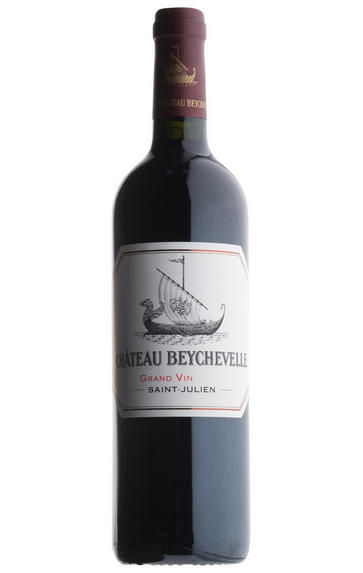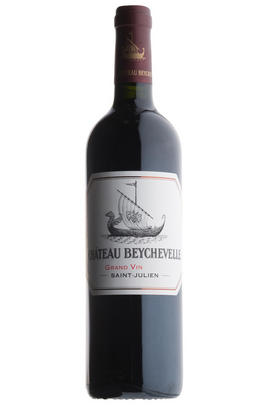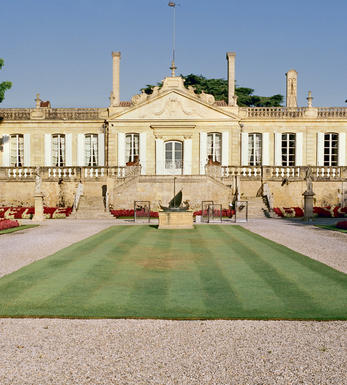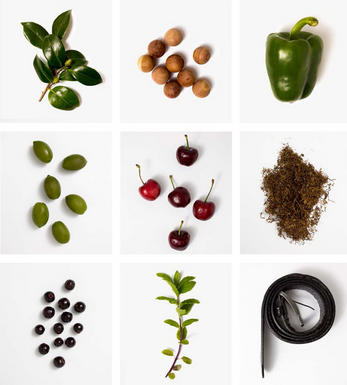
2018 Château Beychevelle, St Julien, Bordeaux

Critics reviews
The 2018 Beychevelle has a very intense nose, easily the most flamboyant of the modern era, with precocious black cherries, creme de cassis and violet scents. The palate is medium-bodied with layers of toasty black fruit laced with white pepper and thyme that exert an insistent grip. This shows slightly better than from my tastings just after bottling, though I maintain that the 2019 is the better of the two vintages. Tasted at the Beychevelle vertical at the property.
Drink 2025 - 2050
Neal Martin, Vinous.com (March 2023)
An unabashedly flamboyant, exotic wine, the 2018 Beychevelle possesses tremendous richness and raciness right out of the gate. Inky dark fruit, chocolate, liquorice, spice, menthol and espresso infuse this sumptuous Saint-Julien with striking aromatic and flavour complexity. Soft contours and silky tannins add to its irresistibly sensual personality. Time in the cellar should help the new oak assimilate, but readers should be prepared for a full-throttle, heady wine.
Drink 2028 - 2043
Antonio Galloni, Vinous.com (March 2021)
This is a dark, deep colour that perfectly reflects the rich blackberry and bilberry fruits on the nose. I really have noticed that Beychevelle has raised its game over the last few vintages, and it's maintaining that step-up here. The 2018 is built to age and will do so with very little trouble. It has violet edging, a good ripe tannic structure and is full of life. It's rounded in terms of mouthfeel, smoothed out but not knocked off balance by the alcohol.
It may be approachable earlier than usual, perhaps, but with class, ambition, and St-Julien's signature, A yield of 55hl/ha, with 50% of production going into the grand vin. 60% new oak.
Drink 2027 - 2040
Jane Anson, Decanter.com (April 2019)
Aged for around 18 months in barrel, 60% new and 40% second fill, the 2018 Beychevelle needs a fair bit of swirling to release classic notes of cassis, plum preserves and ripe blackberries, with emerging suggestions of unsmoked cigars, tilled soil and cedar chest, plus a waft of pencil lead.
The medium to full-bodied palate is still very tightly wound, offering finely packed black fruit and earthy layers within a frame of firm, grainy tannins and just enough freshness, finishing long and mineral-laced. This will need a good 5-6 years to come around, and then it will drink beautifully over the next 20+ years.
Drink 2026 - 2046
Lisa Perrotti-Brown, Wine Advocate (March 2021)
Currants and blackberries with crushed stone and fresh herbs. Some flower stems, too. It’s full-bodied yet tight and linear with firm, driven tannins. This needs four or five years of bottle age to open and come together.
Try after 2025
James Suckling, JamesSuckling.com (April 2021)
The flagship 2018 Château Beychevelle is a more serious, concentrated, focused wine that still has that classic Saint-Julien purity of fruit and a wealth of fruit. Gorgeous notes of crème de cassis, chocolate-covered blueberries, violets, spring flowers, tobacco leaf, and cedar notes all emerge from the glass, and it's medium to full-bodied, with sweet tannins, moderate acidity, and a great, great finish.
A blend of 50% Cabernet Sauvignon, 41% Merlot, and the rest Petit Verdot and Cabernet Franc, it's one of the sexiest, most up-front and irresistible wines in the vintage. Don't let that scare you, though; it's going to drink beautifully for 2-3 decades.
Drink 2021 - 2051
Jeb Dunnuck, JebDunnuck.com (November 2021)
About this WINE

Chateau Beychevelle
Château Beychevelle is a 4ème Cru Classé St-Julien wine property that boasts one of the most impressive châteaux in the whole of the Médoc. Its label depicts a beautiful galley with a large sail, as a consequence of its ownership in the 16th century by the Duc d`Eperon, Admiral of France at the time. The expression "Baisse-Vaille", meaning "lower sails", later evolved into the name Beychevelle. Today the property is owned by Grands Millésimesde France.
Beychevelle's 85 hectares of vineyards are located in the far south of the St-Julien appellation, just outside the hamlet of St-Julien-Beychevelle. The wine is typically a blend of 60% Cabernet Sauvignon, 28% Merlot, 8% Cabernet Franc and 4% Petit Verdot. It is matured in oak barrels (50-60% new) for 18 months. It is renowned for its suppleness, smoothness and its rich, and sometimes chocolatey character.
The best examples from the best Beychevelle vintages are powerful and concentrated, with oodles of almost sweet, ultra-ripe Cabernet fruit, and can age effortlessly.

St Julien
St Julien is the smallest of the "Big Four" Médoc communes. Although, without any First Growths, St Julien is recognised to be the most consistent of the main communes, with several châteaux turning out impressive wines year after year.
St Julien itself is much more of a village than Pauillac and almost all of the notable properties lie to its south. Its most northerly château is Ch. Léoville Las Cases (whose vineyards actually adjoin those of Latour in Pauillac) but, further south, suitable vineyard land gives way to arable farming and livestock until the Margaux appellation is reached.
The soil is gravelly and finer than that of Pauillac, and without the iron content which gives Pauillac its stature. The homogeneous soils in the vineyards (which extend over a relatively small area of just over 700 hectares) give the commune a unified character.
The wines can be assessed as much by texture as flavour, and there is a sleek, wholesome character to the best. Elegance, harmony and perfect balance and weight, with hints of cassis and cedar, are what epitomise classic St Julien wines. At their very best they combine Margaux’s elegance and refinement with Pauillac’s power and substance.
Ch. Léoville Las Cases produces arguably the most sought-after St Julien, and in any reassessment of the 1855 Classification it would almost certainly warrant being elevated to First Growth status.
Recommended Châteaux: Ch. Léoville Las Cases, Ch.Léoville Barton, Ch Léoville Poyferré, Ch. Ducru-Beaucaillou, Ch Langoa Barton, Ch Gruaud Larose, Ch. Branaire-Ducru, Ch. Beychevelle

Cabernet Sauvignon Blend
Cabernet Sauvignon lends itself particularly well in blends with Merlot. This is actually the archetypal Bordeaux blend, though in different proportions in the sub-regions and sometimes topped up with Cabernet Franc, Malbec, and Petit Verdot.
In the Médoc and Graves the percentage of Cabernet Sauvignon in the blend can range from 95% (Mouton-Rothschild) to as low as 40%. It is particularly suited to the dry, warm, free- draining, gravel-rich soils and is responsible for the redolent cassis characteristics as well as the depth of colour, tannic structure and pronounced acidity of Médoc wines. However 100% Cabernet Sauvignon wines can be slightly hollow-tasting in the middle palate and Merlot with its generous, fleshy fruit flavours acts as a perfect foil by filling in this cavity.
In St-Emilion and Pomerol, the blends are Merlot dominated as Cabernet Sauvignon can struggle to ripen there - when it is included, it adds structure and body to the wine. Sassicaia is the most famous Bordeaux blend in Italy and has spawned many imitations, whereby the blend is now firmly established in the New World and particularly in California and Australia.


Buying options
Add to wishlist
Description
The 2018 Beychevelle has a very intense nose, easily the most flamboyant of the modern era, with precocious black cherries, creme de cassis and violet scents. The palate is medium-bodied with layers of toasty black fruit laced with white pepper and thyme that exert an insistent grip. This shows slightly better than from my tastings just after bottling, though I maintain that the 2019 is the better of the two vintages. Tasted at the Beychevelle vertical at the property.
Drink 2025 - 2050
Neal Martin, Vinous.com (March 2023)
wine at a glance
Delivery and quality guarantee